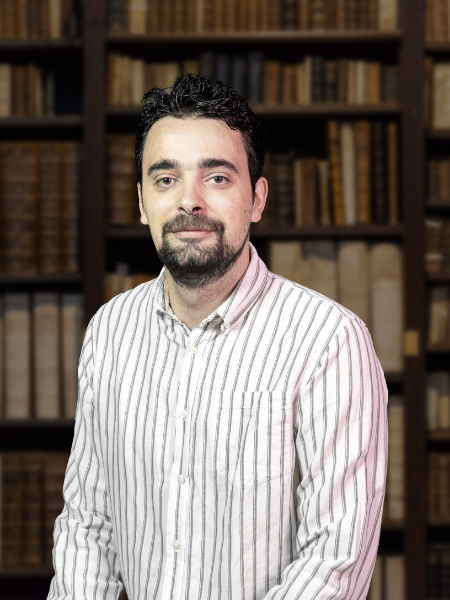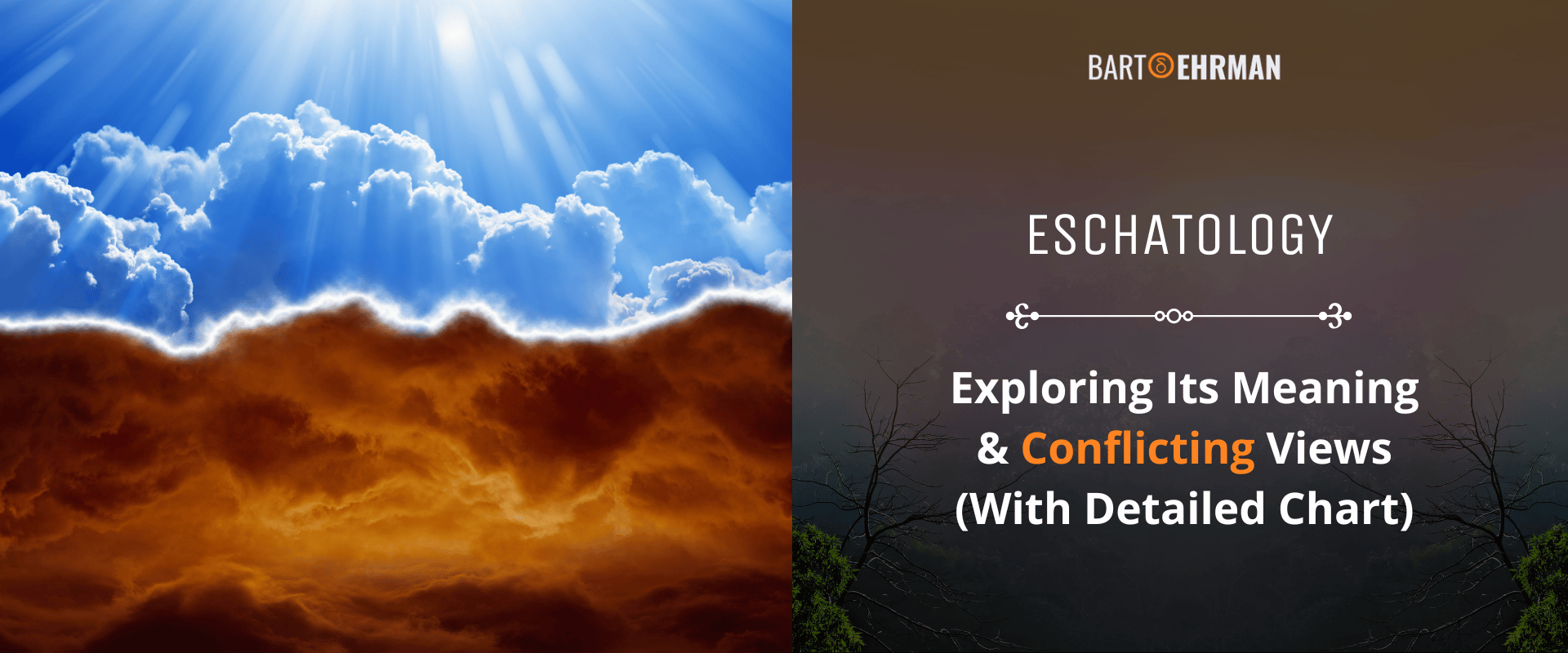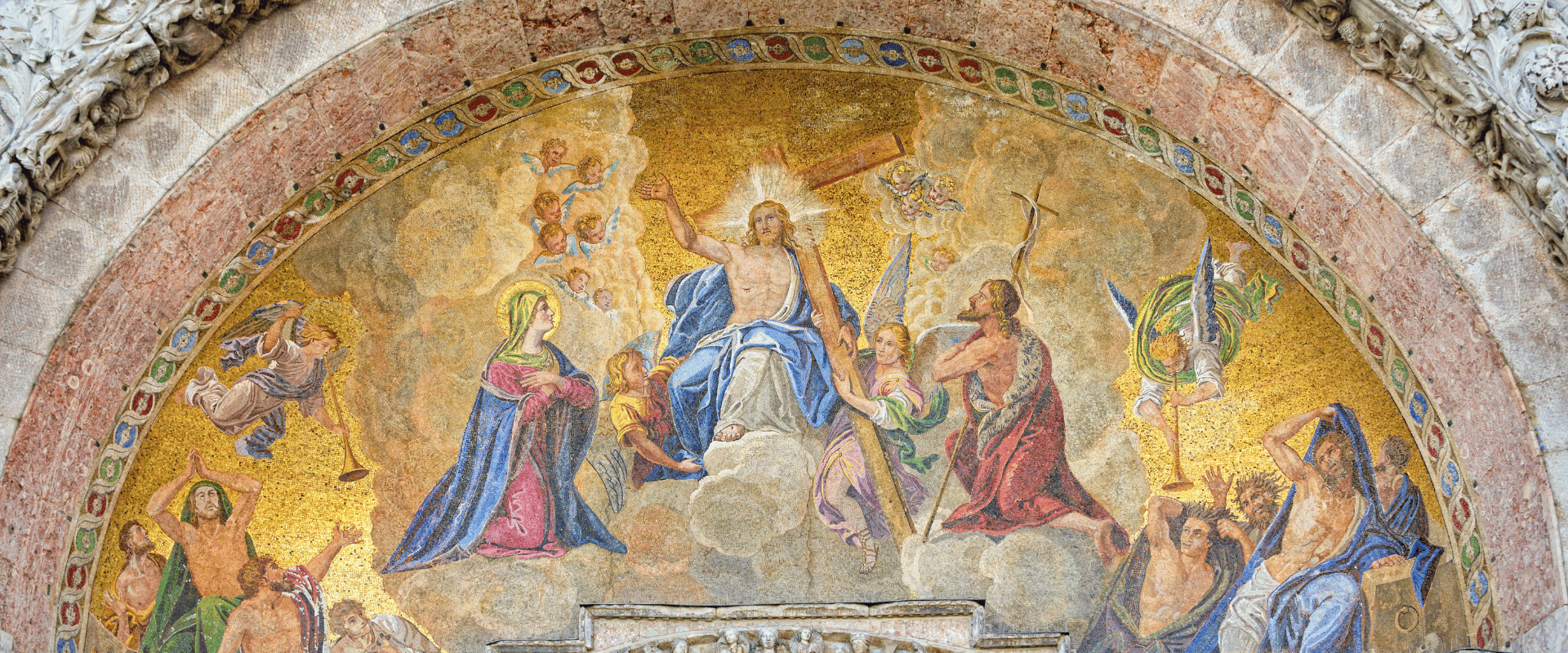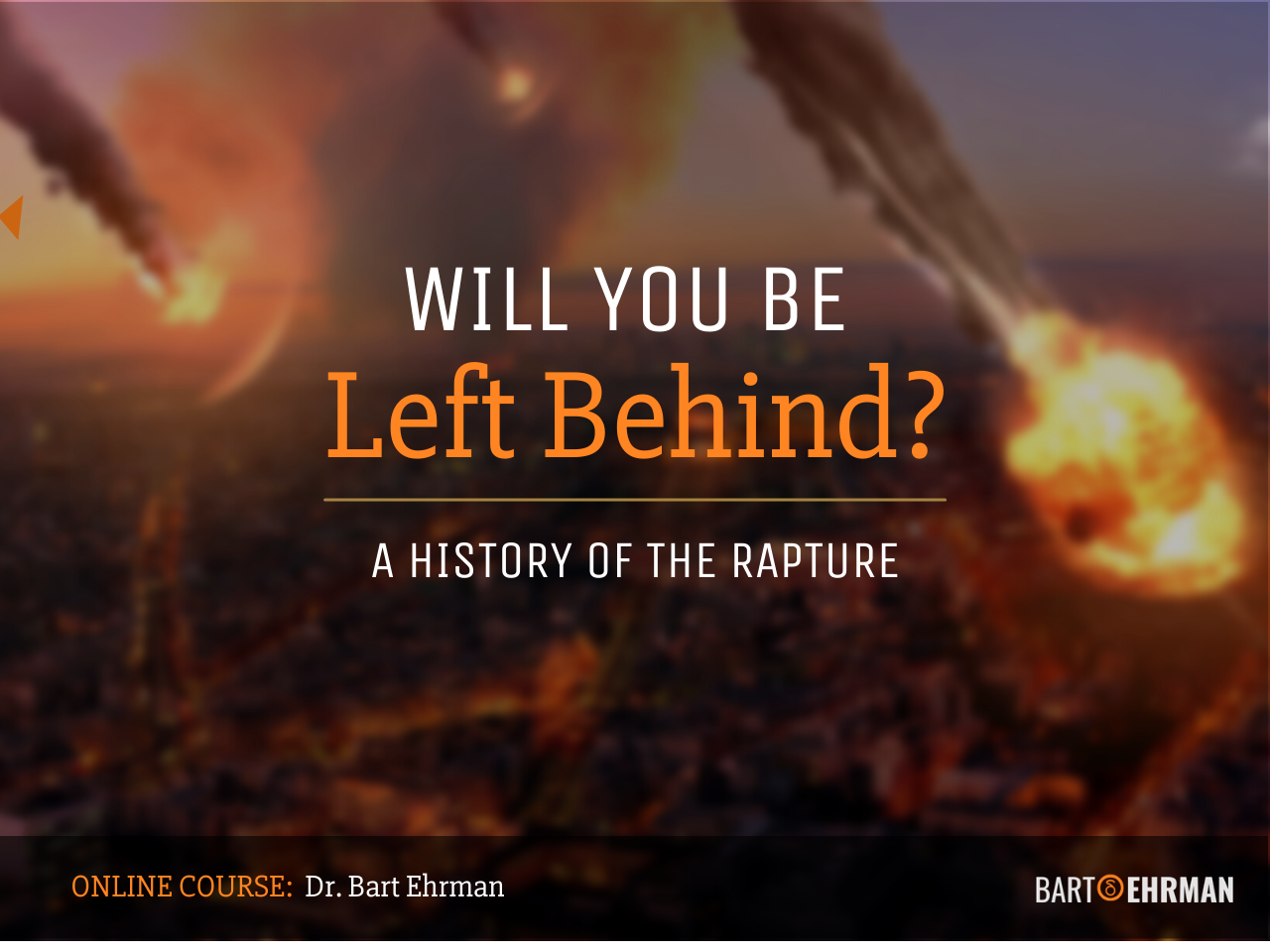Eschatology: Exploring Its Meaning & Conflicting Views (With Detailed Chart)

Written by Marko Marina, Ph.D.
Author | Historian
Author | Historian | BE Contributor
Verified! See our guidelines
Verified! See our editorial guidelines
Date written: August 19th, 2024
Edited by Laura Robinson, Ph.D.
Disclaimer: The views and opinions expressed in this article belong to the author and do not necessarily match my own. - Dr. Bart D. Ehrman
Nearly 2,000 years ago, the Roman philosopher Seneca observed, “Nothing will abide where it is now placed. . . . Time will lay all things low and take all things with it. . . [It] will level whole mountains, and in another place will pile up rocks on high; it will drink up seas, turn rivers from their courses.”
Seneca’s eschatological reflection on the relentless passage of time captures a theme that has preoccupied human thought across cultures and ages: the inevitable transformation — and perhaps ultimate end — of the world as we know it.
Similarly, ancient Taoist writings foretold of a catastrophic deluge that would bring forth devastating epidemics, darkness, and earthquakes, culminating in the complete incineration of the earth, mountains included. Such eschatological visions, though differing in detail, share a common thread: a profound concern with the final destiny of humanity and the cosmos.
Across the spectrum of religious beliefs, from early civilizations to modern theological debates, the concept of eschatology — the study of the end times — has persisted as a powerful force, shaping not only spiritual doctrine but also human understanding of existence itself.
In this article, we’ll delve into the rich and varied landscape of Christian eschatology, examining its origins, development, and the conflicting interpretations that have emerged over centuries.
We’ll also explore how eschatological thought has evolved within Christianity, particularly through the contributions of theologians such as R.C. Sproul, John MacArthur, and John Piper.
Finally, we will present a detailed chart comparing key eschatological views, offering a clear guide to understanding the diverse ways in which believers envision the end of the world and the dawn of what might come after.

Eschatology: Etymology and Definition
Eschatology, pronounced “es-kuh-TOL-uh-jee,” is a term that stems from the Greek word eschatos, meaning “last” or “end”, combined with logia, meaning “study of” or “doctrine.” As a branch of theology, eschatology is concerned with the study of the ultimate destiny of humanity and the world, often referred to as the “end times.”
Referring to the Christian tradition, David Ferguson, in The Cambridge Companion to Christian Doctrine, explains:
“Eschatology has traditionally been understood as the doctrine of the last things. In manuals of doctrine, the four last things were often identified as resurrection, judgment, heaven, and hell. The task of eschatology was to elucidate these on the basis of information contained in scripture and tradition.”
Thus, the eschatology meaning is deeply rooted in the theological attempt to understand and articulate the ultimate events that are believed to conclude the present world order. Traditionally, these events have been framed as the final components of Christian doctrine. (Affiliate Disclaimer: We may earn commissions on products you purchase through this page at no additional cost to you. Thank you for supporting our site!)
In other words, eschatology is often seen as the final piece in the intricate puzzle of Christian belief, offering clarity and resolution to the grand narrative of creation, fall, and redemption. The eschatological perspective, therefore, isn’t merely an isolated doctrine, but a lens through which the entirety of theological understanding can be viewed.
History of Eschatology
Eschatology might sound like a term best reserved for dusty theological tomes, but its history is anything but boring.
From apocalyptic prophets to centuries of scholarly debate, the journey of eschatology through the ages is a fascinating tale of how humanity has tried to predict the ultimate “spoiler alert” — the end of the world.
So, in this section, we'll briefly delve into the origins of Christian eschatological beliefs and the eventual emergence of eschatology as a distinctive field within theology.
The Emergence of the Christian Eschatological Beliefs
Christianity emerged in its earliest form as a fervent eschatological movement deeply rooted in the apocalyptic expectations of the time. At the center of it was the historical Jesus, who many scholars considered to be an apocalyptic prophet.
Jesus’ public ministry was intensely focused on the imminent end of the present world and the dawning of the Kingdom of God.
His teachings echoed the core tenets of Jewish apocalyptic eschatology, which held that God would soon fulfill his promises to Israel. According to this belief, foreign rulers who oppressed God’s people would be overthrown, justice would prevail, and a divinely appointed king would reign over a restored Israel.
Furthermore, the early Christian community, formed in the aftermath of Jesus’ death and alleged resurrection, continued this eschatological emphasis. The writings of the Apostle Paul, particularly in his earliest epistles, reveal that the first Christians lived in the fervent expectation of Jesus’ imminent return and the establishment of God’s Kingdom (e.g. 1 Thess 4:13-18).
In other words, this belief in the imminent Parousia (Jesus’ second coming) and the subsequent establishment of God’s Kingdom on earth was a defining characteristic of the early Church. As historian E.P. Sanders aptly observes: “The most certain fact of all is that early Christianity was an eschatological movement.”
However, as the decades passed and the expected return of Jesus didn’t materialize, the early Christians faced a profound challenge. The delay in the Parousia led to what scholars such as John Gager (Kingdom and Community) described as cognitive dissonance — a tension between their expectations and the unfolding reality.
To reconcile this, early Christians began to reinterpret Jesus’ teachings, gradually shifting from a strictly apocalyptic framework to a more nuanced understanding of his message. As Bart D. Ehrman notes in Jesus: The Apocalyptic Prophet of a New Millennium, this process of reinterpretation effectively "de-apocalypticized" Jesus.
This shift not only allowed the Christian faith to adapt to its growing temporal extension but also laid the groundwork for the development of eschatology as a distinct theological discipline. Over time, what began as an urgent expectation of the end evolved into a complex field of study within Christian theology.
As we continue, we’ll turn our focus to some of the pivotal figures who have shaped this branch of theology, thus exploring how their contributions have influenced the development and understanding of eschatology in the modern Christian tradition.
The Rise of Eschatology as a Scholarly Field
The term “eschatology,” as Markus Mühling notes, comes from Protestant Orthodoxy — Lutheran Orthodoxy in particular. Protestant Orthodoxy describes a theological strand in the late sixteenth to eighteenth centuries, characterized by its thorough, comprehensive, and scientific approach to theology.
As a term, “eschatology” finally became established in scholarship after the decline of Protestant Orthodoxy — once German had become the standard academic language for theology and the Enlightenment emerged.
Due to the limited scope of this article, we can’t deal in depth with the broader historical development of eschatology as a field of study. Instead, we’ll focus first on the eschatological views of Martin Luther and John Calvin. We’ll then turn to some contemporary theologians and their respective eschatological approaches.
Martin Luther’s eschatological outlook was deeply intertwined with his theological convictions, particularly his understanding of salvation and the role of faith. Luther believed that the world was on the brink of a dramatic and divine intervention, a conviction strongly influenced by his interpretation of the turbulent events of his time.
For Luther, the corruption within the Catholic Church and the clarity of the gospel message, now restored through the Reformation, were indicators that the world was nearing its final days.
Moreover, Luther’s eschatology was marked by a profound sense of urgency. He didn’t attempt to pinpoint the exact timing of the end, but he was convinced that the final chapter of human history was being written in his own time.
As Jane E. Strohl in The Oxford Handbook of Martin Luther’s Theology, eloquently summarizes:
“The eschatological force of Luther’s theology is clear. Although he abided by the Lord’s caution that the exact time of the end was known only to the Father, Luther was confident that the world was writing the last chapter of its history. It was a moment of ultimate decision for individuals, communities, and kingdoms.”
This belief in the imminent end of the world gave Luther’s message a sense of immediacy that was both compelling and, at times, harsh. He saw the unfolding of history as a moment of critical decision-making, where individuals and entire societies faced a stark choice: embrace the restored gospel of grace or face eternal consequences.
While sharing some of Luther’s eschatological concerns, John Calvin approached the subject with a more measured tone (Fun fact: Revelation was the only book of the New Testament on which he didn't write a commentary). Calvin’s eschatology was firmly rooted in his doctrine of God’s sovereignty and providence, which shaped his understanding of the end times.
Unlike Luther, who saw the Reformation as a sign of the imminent end, Calvin emphasized the mystery of God’s timing and cautioned against speculative predictions about the return of Christ.
For Calvin, eschatology wasn’t about predicting specific events or timelines but affirming the ultimate victory of God’s kingdom. He taught that believers should live in a state of readiness, always prepared for Christ’s return, but not succumbing to fear or speculation.
Christian Eschatology: Modern Contributions
Given the prominence of the “last days” and the anticipated return of Jesus throughout Christian history, it’s no surprise that eschatology has been seen as a crucial component of Christian theology by many influential figures.
Calvinist theologian Karl Barth, in his commentary on Romans, employed strikingly forceful language when he declared, “Christianity that is not totally and utterly eschatological has nothing whatever to do with Christ.” This sentiment is echoed by Joseph Ratzinger, who observed that “eschatology has moved into the very center of the theological stage.”
In this section, therefore, we’ll explore how several contemporary Protestant theologians have engaged with the concept of eschatology, beginning with Robert C. Sproul.
Sproul’s eschatological views are most notably articulated in his influential book The Last Days According to Jesus. In this work, Sproul grapples with the question of how to understand the eschatological predictions found in the New Testament, especially because first Christians (as much as we can deduce from the sources) expected Jesus to return within their lifetimes.
Sproul was particularly interested in the concept of “preterism,” which is the belief that many of the eschatological prophecies in the Bible, particularly those in the Book of Revelation, were fulfilled in the first century with the destruction of the Temple in Jerusalem.
Moreover, Sproul also sought a balance between literalism and symbolic interpretation. He acknowledged that certain eschatological passages in the Bible are highly symbolic, particularly those found in apocalyptic literature like Revelation.
Additionally, Sproul was known for his defense of the Reformed eschatological view, particularly amillennialism, which interprets the millennium mentioned in Revelation 20 symbolically rather than literally.
Furthermore, he argued that understanding when to apply literal versus symbolic interpretation is essential for a proper grasp of eschatology. His nuanced approach allowed him to address the challenges posed by both strict literalism, which can lead to speculative predictions, and overly symbolic interpretations, which might obscure the prophetic significance of Scripture.
As he puts it in simple terms while referring to the so-called Olivet discourse (e.g. Mk 13; Mt 24-25, and Lk 21): “Something in this text has to be interpreted figuratively and something has to be interpreted literally, or there is no way to salvage this text from the guns of higher criticism.” This is a particularly interesting notion to which I’ll return briefly in the conclusion of this article.
Prophecy and Flexibility: A Lesson from Jehovah’s Witnesses
Did you know that Jehovah's Witnesses have predicted the end of the world and Jesus' second coming multiple times? One of the most notable predictions was for the year 1914. According to their calculations, 1914 was to be the year when Jesus would return and establish His Kingdom on earth, marking the beginning of the end times.
When the world didn’t end as expected, the leadership of the movement didn’t just admit they might have been off by a century or two; they reinterpreted the prophecy. The new explanation? Jesus did indeed return in 1914, but His coming was invisible, and He began to rule as King in heaven rather than on earth.
This reinterpretation is a fascinating example of how people can adapt eschatological beliefs in the face of unmet expectations. While predicting the end of the world might be a tricky business, the ability to adjust interpretations with resilience (and a touch of ingenuity) is certainly something to admire!
John MacArthur is well-known for his strong advocacy of premillennial eschatology, particularly in the context of dispensationalism.
Unlike the more nuanced approaches of some of his contemporaries, MacArthur's eschatological stance is characterized by a clear and unwavering commitment to a literal interpretation of Scripture, especially regarding prophetic passages.
He believes that the Bible, when properly understood, provides a detailed and specific account of the end times, including the events leading up to Jesus’ second coming, the millennium, and the final judgment.
Central to MacArthur’s eschatology is the belief in Jesus’ literal thousand-year reign on earth, a doctrine known as futuristic premillennialism. According to this view, Jesus will return to establish his kingdom on earth before the millennium — a period during which he will reign in peace and righteousness.
In their book Biblical Doctrine, John MacArthur and Richard Mayhue explain:
“Futuristic premillennialism is based on three main beliefs... As a result, futuristic premillennialism expects a literal fulfillment of all physical, national, land, and spiritual blessings in the Bible, including those to Israel and the nations... Second, futuristic premillennialism maintains the biblical distinction between Israel and the church and understands that the Bible does not confuse the two... Third, futuristic premillennialism recognizes that Scripture presents a coming fulfillment of Daniel’s seventieth week which is seven years of tribulation, and that comes before Jesus’s earthly millennial kingdom.”
In other words, MacArthur teaches that this period will be preceded by a series of prophetic events, including the rapture of the church, the tribulation, and the ultimate defeat of Satan.
So, his approach is rooted in a literalist hermeneutic, which insists on the straightforward interpretation of biblical prophecy. MacArthur argues that symbolic or allegorical interpretations often lead to confusion and undermine the authority of Scripture.
The last theologian we'll consider in this exploration of contemporary eschatological thought is John Piper — a well-respected Reformed pastor and theologian known for his emphasis on the sovereignty of God and the centrality of Christ in all things.
Piper’s eschatology, while rooted in a Reformed theological framework, is often characterized by a blend of both amillennial and premillennial perspectives.
While Piper acknowledges the symbolic nature of certain eschatological passages, he tends to lean towards a historic premillennial view, which holds that Christ will return before a literal millennium — a period of Christ’s reign on earth — after a time of tribulation.
Furthermore, Piper emphasizes that eschatology should ultimately direct believers’ focus toward the glory of God and the supremacy of Christ in all things. He often speaks of the end times not as a source of speculative prediction but as a powerful motivator for Christian living and mission.
For Piper, the certainty of Christ’s return and the final judgment serves as a profound encouragement/motivation for believers to persevere in faith and religious zeal — a cause that, according to some scholars such as Bart D. Ehrman, could have been an important reason for the emergence of early Christian missionary impulses!
Having explored how these influential theologians approach eschatology, we’ll now turn our attention to a comparative chart that outlines the prominent eschatological perspectives within Christian theology.

Eschatology Views Comparison Chart
Eschatological View | Description | Key Beliefs |
|---|---|---|
Premillennial Eschatology | Belief in a literal thousand-year reign of Jesus on earth, following his second coming. | Christ returns before the millennium. The millennium is a future, physical reign of Jesus on earth, involving a period of peace and righteousness. |
Amillennial Eschatology | Interprets the millennium mentioned in Revelation 20 symbolically rather than literally. | The millennium is understood as the current church age, with Jesus reigning spiritually. There is no future literal thousand-year reign. |
Biblical Eschatology | A term often used to describe eschatology that adheres closely to a literal interpretation of biblical prophecy. | Emphasizes a literal reading of Scripture, expecting the fulfillment of prophetic events exactly as described in the Bible. |
Reformed Eschatology | Eschatology is rooted in Reformed theology and is often associated with amillennialism. | Focuses on God's sovereignty and the fulfillment of his divine plan, often interpreting eschatological events symbolically. |
Covenant Theology Eschatology | This eschatology arises from the framework of covenant theology, which views all of history as governed by divine covenants. | Typically aligns with amillennialism. It views eschatological events as the culmination of God's covenantal promises to his people. |
Inaugurated Eschatology | This view holds that the “last days” began with the life, death, and resurrection of Jesus. Through these events, God’s kingdom was also inaugurated, but the full realization will be completed with Jesus’ second coming. | The kingdom of God is already present (“now”) but not yet fully realized. Eschatological events are understood as part of a larger narrative in which God is renewing creation and bringing about his ultimate purpose. |
Dispensational Eschatology | A view that divides history into distinct periods or "dispensations," with the end times marking the final dispensation. | Emphasizes a future rapture of the church, a literal seven-year tribulation, and a future millennial reign of Jesus on earth. |
This chart highlights the diversity of eschatological perspectives within Christian theology and illustrates how different interpretations of Scripture lead to varying understandings of the end times.
Conclusion
In examining the varied landscape of eschatological thought within Christian theology, we have seen how different interpretative approaches — whether literal, symbolic, or a blend of both — shape our understanding of the end times.
Sproul's insistence on balancing figurative and literal interpretation highlights a critical challenge theologians face: how to faithfully engage with Scripture in a way that withstands the scrutiny of modern historical criticism.
Moreover, Sproul's call to safeguard the integrity of Scripture from the “guns of higher criticism” reminded me of a brilliant distinction that Paula Fredriksen once made between two important but fundamentally different fields of inquiry: theology and history.
Theology, as she notes, is primarily textual and trans-temporal, concerned with interpreting sacred texts and their meanings across time — constantly finding answers for contemporary issues.
History, on the other hand, is contextual and temporal, focused on reconstructing the past through the lens of cultural, social, and material conditions of the era. For historians, primary sources like inscriptions, archaeological findings, and historical documents guide the critical reconstruction of figures such as Jesus of Nazareth.
From this perspective, Jesus is understood as a man embedded within a specific historical context, whose concerns and worldview might not align with our own. In contrast, theology finds in Jesus the eternal Son of God, whose significance transcends any specific time or place.
This methodological chasm between history and theology is, in my view, unbridgeable, yet it is precisely within this space that the study of eschatology becomes so vital and complex. Ultimately, eschatology, as both a theological and historical endeavor, invites us to navigate this intricate balance between text and context, between the eternal and the temporal.
If you’re interested in diving deeper into the complexities of eschatology and the historical context of biblical prophecy, consider enrolling in Dr. Bart D. Ehrman’s online course, “Will You Be Left Behind? A History of The Rapture.”
In this course, Dr. Ehrman offers a scholarly analysis of the Book of Revelation, emphasizing the significance of its historical context and addressing crucial questions like, “Does the Book of Revelation predict our future? Is it meant to?” This course is an excellent opportunity to further explore the fascinating interplay between history, theology, and eschatological expectation!

